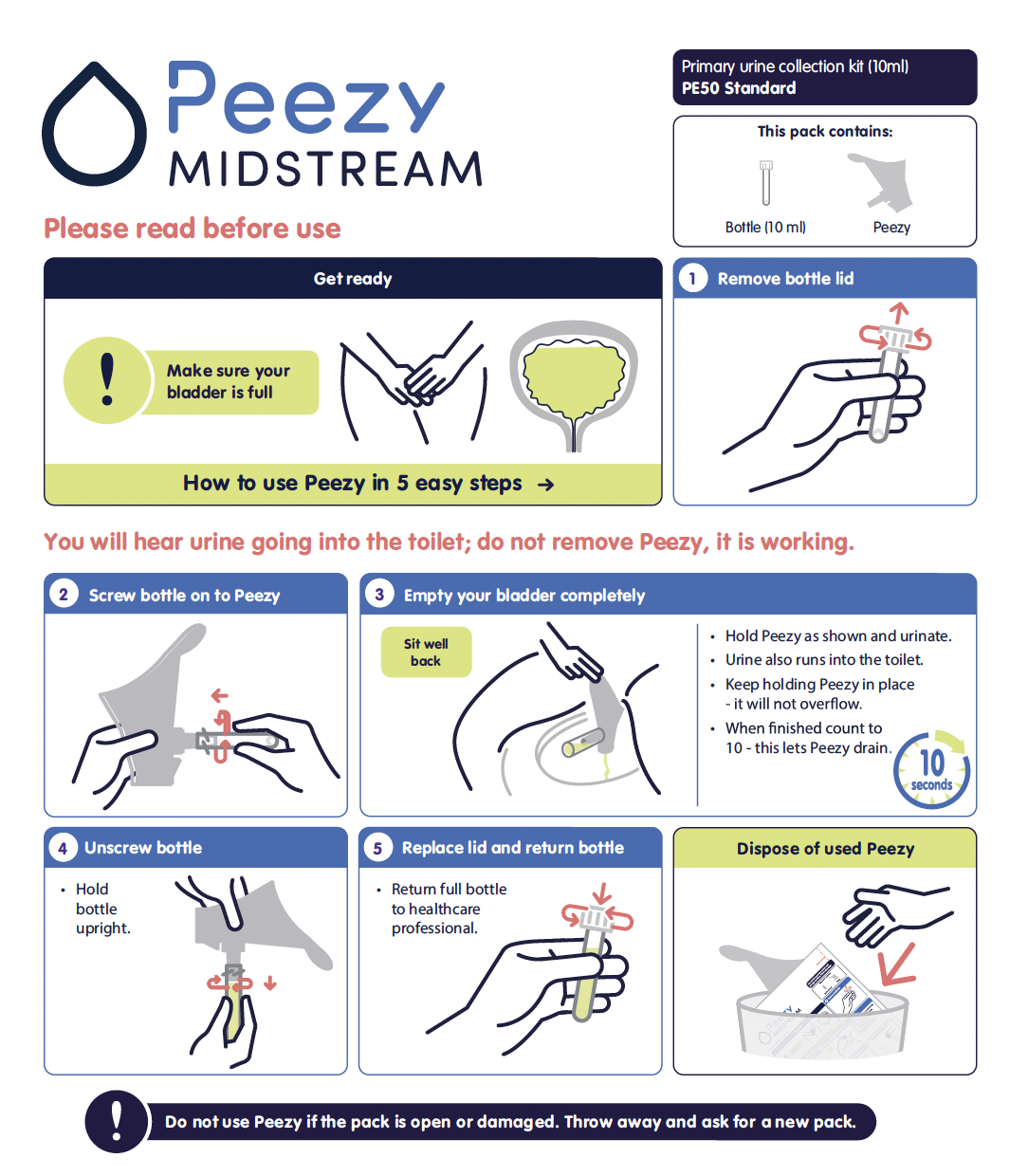Peezy Midstream
Automated midstream collection. A quiet but powerful step forward in women’s health.

What clinicians are saying
Using the Peezy device in clinical practice has completely transformed how we approach caring for patients with UTI symptoms and provided a 66% saving on lab spend.Public Health Wales GP Surgery Trial Real-world primary care audit
With collection of the correct urinary fraction, the path to a sound diagnosis is completely opened up. Great work, Forte Medical.Dr Michael Murray, RTTP CEO, MetalloBio
We have used Peezy Midstream in clinic. It collects a better specimen with lower contamination, meaning fewer repeats.Prof. Frank Chinegwundoh Consultant Urological Surgeon
Research strongly indicates that using the Peezy Midstream device can dramatically reduce contamination.Louise de Winter Director of Research, The Urology Foundation
Lack of protocol can also lead to failed diagnoses, serious illness, chronic conditions, repeat tests and appointments. Inaccurate urinalysis in pregnancy can cause short and long term problems for mother and child.
All of this creates unnecessary concern for the patient, financial and resource burdens on healthcare providers, laboratories and GP surgeries.
How to buy from the NHS Supply Chain Catalogue:
All of this creates unnecessary concern for the patient, financial and resource burdens on healthcare providers, laboratories and GP surgeries.
How to buy from the NHS Supply Chain Catalogue:
Despite being a leading source of bacterial bloodstream infections, UTIs remain a chronically neglected area of infectious diseases.
The good news for women undertaking UTI and prenatal screening is that with Peezy Midstream, guideline-compliant urine collection is automated, clean and dignified – no more start-stop-start, no more splashing, spills or soiled hands. Take a look at our animated instructions for use.
Healthcare provider budgets no longer need to be flushed down the loo, because Peezy Midstream is proven to reduce significantly, retesting and false positives specimens.
Gold Standard
Midstream urine is the gold standard specimen for successful and accurate analysis for accurate diagnosis and treatment with a targeted antibiotic. It is recommended in all primary care guidelines. Yet there is no protocol for its collection.
Increased Accuracy
Failure rates of conventional urine collection are between 15% and 30% are common. Peezy Midstream is shown to reduce contamination to as low as 0% in a real-world Primary Care GP trial.
Pioneer of Womens' Health
Between 34-60% of women receive empirical broad spectrum prescribing before diagnosis has taken place. This means they may take unnecessary antibiotics – especially problematic when pregnant.
Unreliable urine collection fails women the world over; the prescribing of broad-spectrum antibiotics fuels the global rise of Antimicrobial Resistance (AMR), and is a major factor in cases of Sepsis.
As a condition responsible for 1 in 5 deaths worldwide, sepsis is the final common pathway to death from most infectious diseases. It is intrinsically interlinked with antimicrobial resistance (AMR), and lack of diagnostic accuracy hampers efforts not only to treat sepsis but also to deliver responsible antimicrobial stewardship. With between 15 and 20% of cases in high income countries being caused by urinary tract infection, and with resistance to first-line treatment among the most common urinary pathogens running as high as 50% in some regions, any product which improves diagnostic accuracy will not only improve outcomes for individual patients but is also likely to help us counter the threat of AMR.
